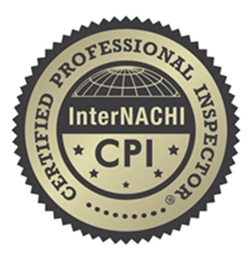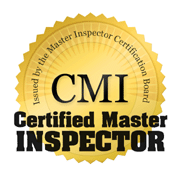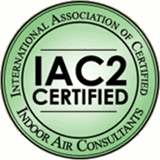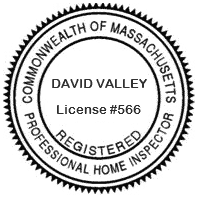Massachusetts Home Inspections YOUR INVESTMENT IS MY CONCERN

Septic Systems
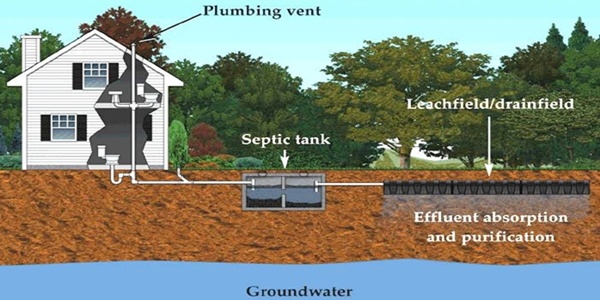
The purpose of an on-site wastewater treatment system, commonly known as a septic system, is to process and treat household sewage. A typical septic system consists of two main components: a septic tank (see image below) and a soil treatment area. The most common type of sewage tank is a septic tank, which collects raw sewage from the home. Inside the tank, three layers form: solids settle at the bottom, scum or grease floats to the top, and a liquid layer remains in the middle. As new sewage enters the tank, an equal volume of liquid flows out into the soil treatment system, commonly referred to as the leaching field.
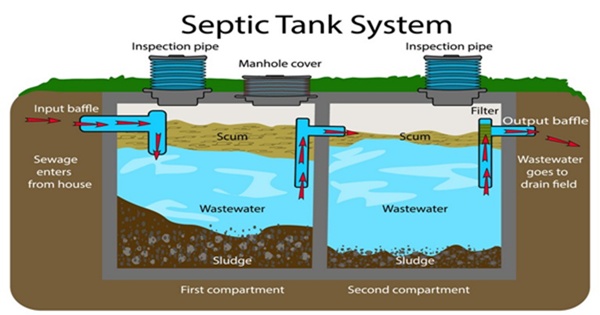
MAINTAINING YOUR SEPTIC SYSTEM
✅ All household sewage waste should be discharged into the septic tank. Do not route wastewater from laundry machines, saunas, or similar sources directly into the drain field, as detergents and soap scum can quickly clog the soil pores, leading to system failure.
✅ Avoid using "starters" or additives in your septic system. Household waste naturally contains enough bacteria to maintain proper system function, even after the tank has been pumped. Additives provide no proven benefit and may actually harm the system. Some can cause sludge to expand or float, leading to solids being flushed into the drain field, which can clog soil pores and cause system failure. Additionally, certain additives—especially degreasers—may contain harmful chemicals or carcinogens that can contaminate groundwater along with treated wastewater..
✅ Have your septic system inspected every one to two years and pumped every two to three years by a licensed septic system contractor to remove accumulated solids and scum. While systems located away from lakes or rivers may not require annual pumping, doing so provides added protection—especially for properties near shorelines—helping prevent potential contamination and system failure.
✅ When having the septic tank pumped, ensure the manhole cover is removed so all solids can be properly extracted. The sludge should be thoroughly mixed during the pumping process for complete removal. A 4-inch inspection pipe does not allow for adequate cleaning. Pumping through this port can also cause scum and grease to clog the outlet baffle, potentially leading to system issues.
✅ Do not treat your septic system as a trash can. Overuse of garbage disposals is a major cause of clogged systems. Avoid putting grease, oil, disposable diapers, colored toilet paper, paper towels, tissues, paint, pesticides, coffee grounds, or any non-biodegradable items down household drains. These materials can disrupt the system’s function and lead to costly repairs or failures.
✅ Plant only grass over and around your septic system. Tree and shrub roots can infiltrate and clog the absorption field, potentially damaging the system.
✅ Keep roof drains, sump pump drains, and other rain or surface water drainage systems away from the absorption field. Excess water can saturate the soil, preventing it from effectively filtering and treating wastewater.
✅ Stay alert for signs that your septic system may need service. Unpleasant odors, soggy soil, visible liquid waste, or excessive grass growth over the absorption area can all indicate a problem with the system.
✅ When properly maintained, septic tanks are safe and reliable. Pumping the septic tank typically costs between $200 and $500. However, replacing the entire system and drain field can be expensive, ranging from $6,000 to $20,000, depending on the size and scope of the system.
✅ Neglecting proper maintenance of your septic system can increase the risks to human health and water quality.
FOLLOW THESE GUIDELINES TO PREVENT YOUR SEPTIC SYSTEM FROM FAILING
✅ Wash only full loads in the dishwasher. Most dishwashers use around 13 gallons of water per cycle, while newer models use 8-9 gallons. For laundry, wash only full loads and consider using front-loading washers or suds-savers to conserve water. To avoid overloading your septic system, spread your laundry loads throughout the week rather than doing several loads in one day. A single load typically uses about 30-40 gallons of water.
✅ Use liquid laundry detergent, as it is less likely to contain fillers or carriers that could harm the septic system. Be sure to use the minimum amount necessary, as excess detergent can create issues with the system.
✅ Divert water runoff – Rainwater from roofs or driveways should flow away from the drain field.
✅ Install water-saving fixtures – Low-flow toilets, showerheads, and faucet aerators help reduce water load.
✅ NO grease or oil – They solidify and clog pipes or the drain field.
✅ Minimize the use of household chemicals and cleaners. While normal amounts of detergents, bleaches, drain cleaners, toilet bowl deodorizers, and other cleaners won't typically harm the bacterial action in the septic tank, excessive use can disrupt the system’s function.
YOUR SEPTIC SYSTEM MAY BE FAILING IF...
✅ Sewage backup in drains or toilets: This may appear as black liquid with a strong sulfur odor.
✅ Toilet flushing is slow: Drains may run slower than usual, even with the use of plungers or drain cleaners.
✅ Wet areas or water seeping near the drain field: This may or may not have an odor.
✅ Excessive aquatic weed or algae growth in nearby lakes: Nutrient-rich water leaking from your system can contribute to this overgrowth.
✅ Unpleasant odors around your home: These may result from improper venting or a failing septic system.
✅ Presence of bacteria or nitrates in well water: This is a sign of significant water contamination, possibly caused by your own or a neighbor’s failing septic system.
✅ Biodegradable dye flushed through the system appears in nearby lakes or rivers: This indicates improper treatment or leakage from the septic system.
IMMEDIATE ACTIONS IF YOUR SEPTIC SYSTEM IS FAILING
Contact your local health or zoning and planning department. They can provide expert advice and help you address the issue effectively.
Have the septic tank pumped, ensuring both sludge and liquid are removed. This can provide a temporary solution, especially if you also reduce water usage significantly. However, if the drain field or household piping is clogged, or if high water levels are an issue, pumping the tank may not resolve the problem.
Fence off the area to limit exposure to wastewater for humans, pets, and wildlife.
Avoid using additives. They offer no benefit and may harm the system.
Here is what my clients have to say about my home inspection services:
Press F5 (on your keyboard) for additional testimonials
Hello Dave,
You did a Pre-Sale inspection of our home in N. Reading on 11/2006 as Sellers. I must say you prepared us well; can't say as much for the Buyers inspector who missed all the areas where we were still vulnerable.
Anyway, we are putting in an offer on a house in Littleton and proposing a 6/18 inspection date. House was built in 1979, about 2300 sqft. Wanted to give you a heads up.
Brian R.


